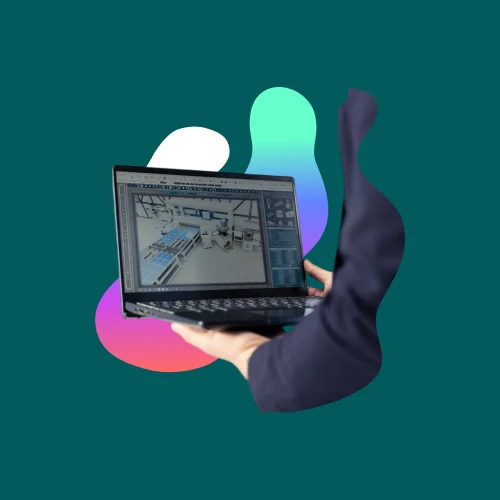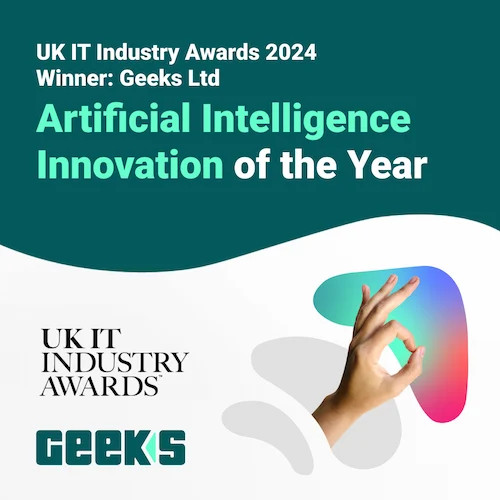
How AI is reshaping the mobile app development lifecycle
If your mobile delivery cycles still mirror what they looked like five years ago, you're already behind. Today's mobile app development lifecycle is under pressure, from rising user expectations to growing product complexity and tighter budgets. The solution is not to build faster for the sake of speed, but to build smarter. That is exactly where AI is stepping in.
AI is no longer limited to backend tasks or novelty features. It is becoming embedded across the entire lifecycle of modern app development, from strategic planning and design through testing, deployment, and optimisation. More than just a technical upgrade, this shift is redefining how cross-functional teams build, ship, and scale.
What is the mobile app development lifecycle?
Traditionally, the mobile app development lifecycle follows a linear path: strategy, design, development, testing, deployment, and ongoing maintenance. Each phase often relies on manual inputs and siloed decision-making.
But AI in app development is changing that. The process is becoming more iterative, data-driven, and collaborative. With intelligent automation in software development, product teams can now respond in real time, reduce technical debt, and close the gap between intent and outcome.
How AI is transforming each phase
The impact of AI on app development isn't theoretical. It is already changing how high-performing teams work. Here's how:
1. Strategy and planning
At the planning stage, AI can process thousands of market signals, user behavior patterns, competitor shifts, and platform updates, to inform product decisions. Feasibility prediction models assess likely development effort and success rates before teams write a single line of code. This allows leaders to commit resources to features that are not only technically achievable but commercially meaningful.
Geeks' AI Opportunity Discovery service supports this phase with tailored workshops and data-driven analysis that helps teams identify where AI will have the most impact across the lifecycle.
2. UX and UI design
In the design phase, generative tools provide multiple UI variations based on historical user journeys and real-time sentiment analysis. Designers can validate concepts early, reducing back-and-forth during development.
Rather than guess what users want, teams can rely on predictive models to estimate satisfaction scores. Designers move from intuition-based decisions to evidence-based experiences.
3. Development
This is where the collaboration between AI and software engineering comes into full focus. Tools like GitHub Copilot and other code assistants suggest snippets tailored to a team’s codebase. They improve development velocity and flag security or performance issues during build, not post-deployment.
Geeks supports teams through our AI Agent Lab, where mobile prototypes are built with integrated AI support, allowing developers to experiment quickly without compromising security or quality.
4. QA and Testing
Testing is often a bottleneck. AI removes the manual burden by generating test cases automatically and scoring regression risks in real time. Models detect likely failure points based on past code patterns and usage data.
This means teams can deploy faster without compromising reliability. And when things break, they understand why, before users feel the impact.
5. Deployment and monitoring
AI-powered mobile apps learn from production environments. Machine learning models track app performance, flag anomalies, and guide rollout strategies using past release data.
Post-deployment, AI can even automate rollback procedures and auto-scale infrastructure in response to user demand. Operations teams gain peace of mind, and users benefit from fewer interruptions.
6. Post-launch optimisation
The most overlooked part of the mobile app development lifecycle is often post-launch. Yet this is where AI shines. Predictive analytics identify churn risks, usage drop-offs, and feature friction points. Feedback is translated into actionable recommendations, allowing product teams to make changes in near real time.
The result? Shorter feedback loops and better-aligned roadmaps based on what users actually do, not what teams think they might do.
Why this is a leadership challenge
Adopting AI in app development isn’t just about buying new tools. It requires leadership to reimagine how teams work. From product managers to engineers, everyone must operate with a shared understanding of data, experimentation, and iterative delivery.
The transition demands new habits, shorter cycles, more collaboration, and the discipline to track what’s working. AI can supercharge performance, but only when built into the culture, not bolted on as an afterthought.
What to watch for
While the benefits are clear, poor implementation can stall progress. Here are three risks to watch:
-
Overreliance on generic models: Not all AI tools fit your app. Teams need context-aware models trained on domain-specific data.
-
Lack of integration: Adding AI without aligning it to product goals leads to wasted effort and fragmented experiences.
Governance blind spots: As AI touches more parts of the stack, risks around compliance, explainability, and user trust grow. These need clear oversight.
How to get started
If you are unsure where to begin, start with structured discovery. Geeks’ AI Opportunity Discovery helps you map where intelligent automation can support the mobile app lifecycle, without derailing existing processes. For teams already building, the AI Agent Lab provides a controlled space to experiment, validate, and scale AI-led features safely.
Think of this shift as a mindset, not a menu of tools. Start small. Build confidence. Track value.
Final thoughts
The mobile app development lifecycle is evolving rapidly. With AI and software engineering advancing together, businesses have the opportunity to deliver faster, better, and more adaptive digital products. But this isn’t just a technical evolution. It is a leadership opportunity.
AI-powered mobile apps are the future but only for organisations that know how to adopt AI intentionally. Whether your team is exploring early use cases or scaling intelligent automation in software development, the opportunity is clear: reduce waste, accelerate innovation, and deliver better experiences.
Geeks can help you do it with confidence.










